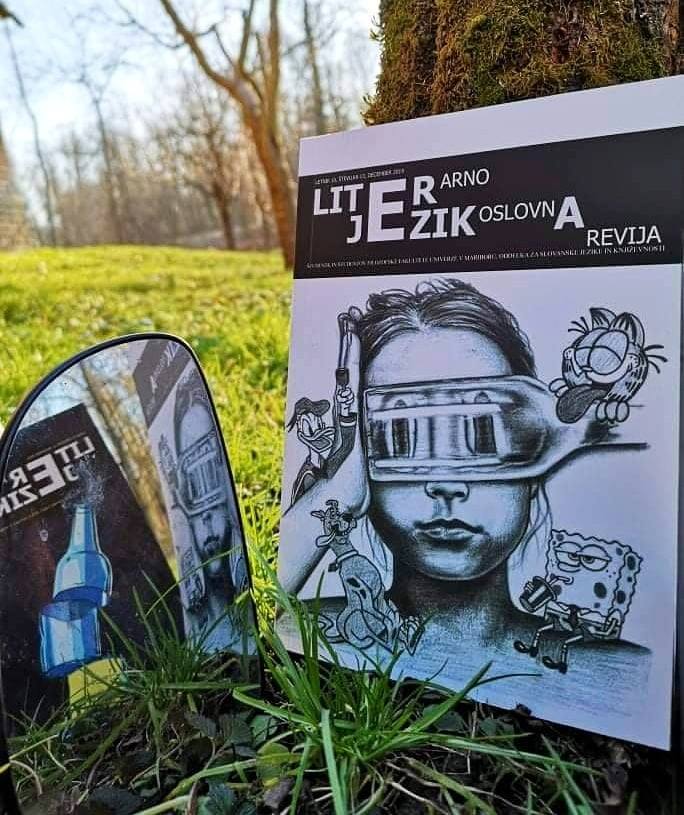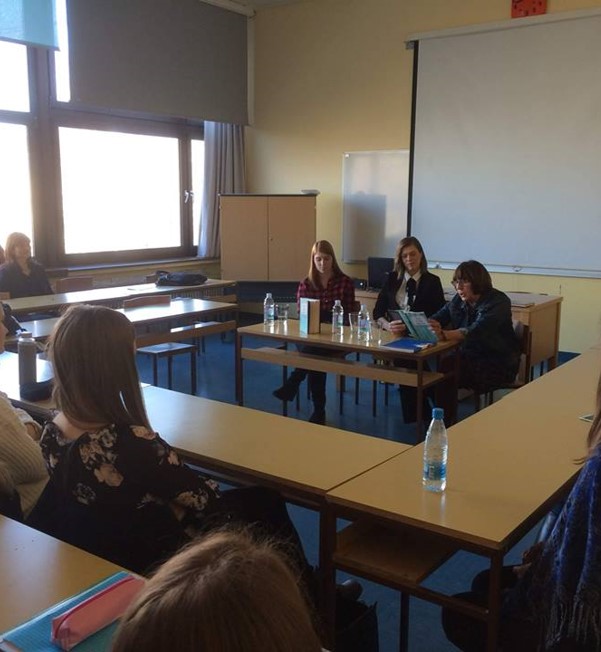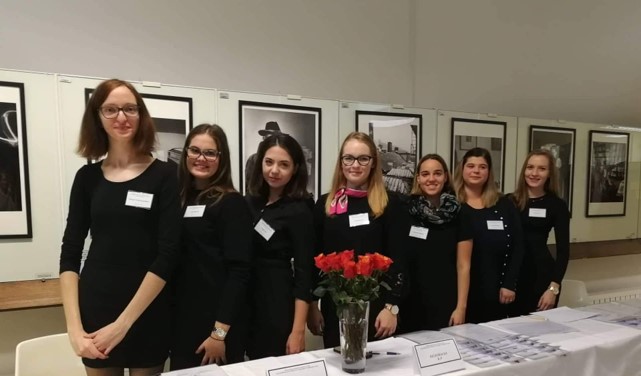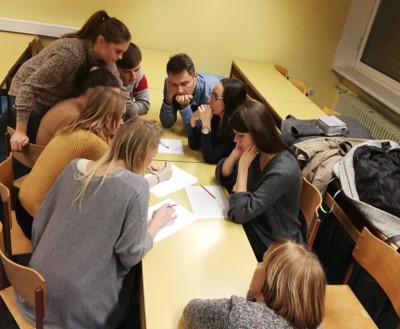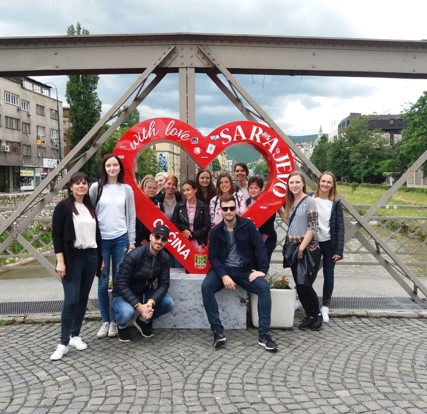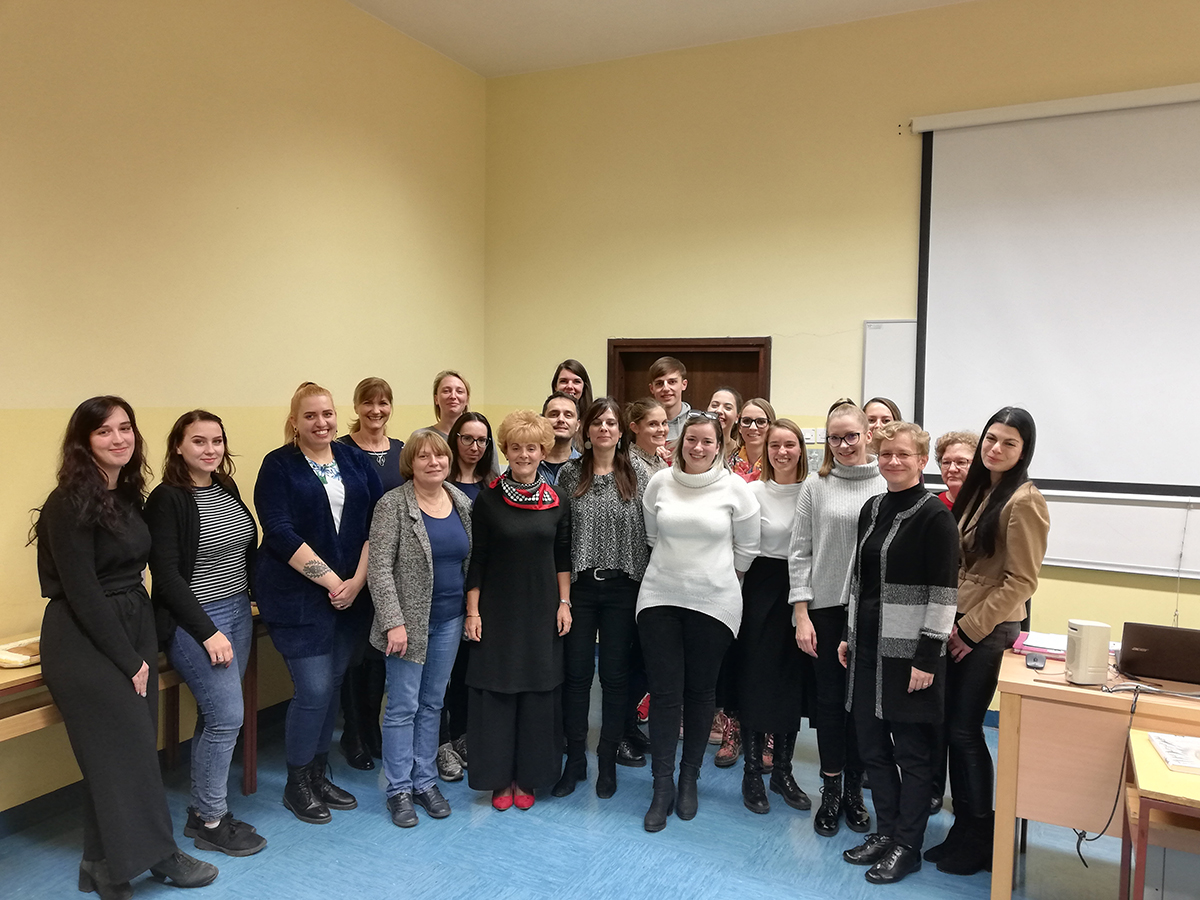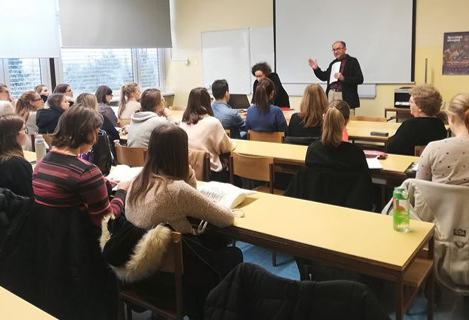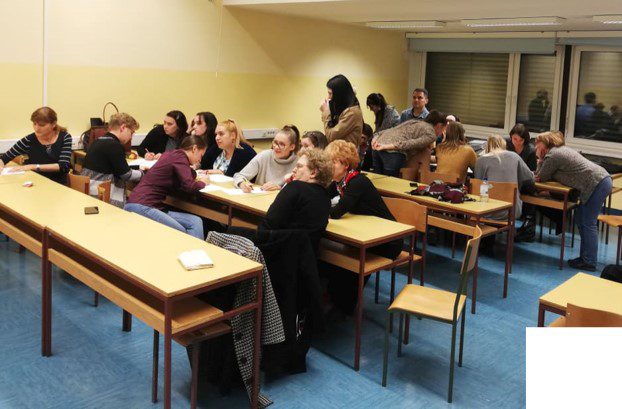INTRODUCTION
The Department of Slavic Languages and Literature is one of the largest departments at the Faculty of Arts in Maribor, with 15 members, a young researcher and a number of associate researchers. It consists of three academic chairs: the Chair of Slovenian Language, the Chair of Slovenian Literature and Literary Theory, and the Chair of Didactics of Slovenian Language and Literature. The Department offers two Undergraduate Study Programmes and three Postgraduate Study Programmes, as well as the Bologna Doctoral Programme in Slovene Studies in the following fields: Slovenian Literature, Slovenian Language, and Didactics of Slovene Language and Literature.
Members of the Department are actively involved in programme groups and domestic, bilateral and international research projects, and regularly collaborate with teaching practicum (both at primary and secondary school level). Their specialist fields of research include: orthographic normativity, (modern, historical, dialectal) lexicography and lexicology, lexical semantics, (critical) discourse analysis, sociolinguistics with an emphasis on post-structuralist approaches to language and gender, Slovene dialectology, and diachrony of the Slovenian language, particularly in regards to historical grammar and language in journalism. Other fields include the development of particular narratological aspects, typological, thematic and stylistic issues in Slovenian essay writing, the theory of metaphor, contemporary Slovenian short fiction, literary translation, literature by Slovenian female authors, ecocriticism, multiculturalism and interculturality in literature.
Students are offered up-to-date knowledge enhancement through numerous guest lectures by visiting professors from Slovenia and abroad, as well as through the annual organisation of guided professional excursions in Slovenia and abroad. Elective courses in Slavic languages offer a unique opportunity to encounter the language, literature and culture of other Slavic countries.
MEMBERS OF THE DEPARTMENT
One of the members of the Department, academic red. prof. dr. Marko Jesenšek, is an associate member of SAZU and the winner of the 2009 Zois Prize (Zois Prize for Outstanding Achievements in the field of Slovenian Language). Another member of the Department, red. Prof. dr. Jožica Čeh Steger, won the Faculty of Arts, University of Maribor 2018 Miklošič Award for outstanding scientific research achievements.
STUDY PROGRAMMES
The study of Slovenian language and literature is structured as both a single and combined study programme. The combined programme involves the study of Slovene Language and Literature and one other study programme (History, English Language and Literature, German studies, etc.). Second-cycle programmes offer both pedagogical and non-pedagogical qualifications. The Department offers first-, second- and third-cycle study programmes: two Undergraduate Study Programmes in Slovene Language and Literature, three Postgraduate Programmes in Slovene Language and Literature, and a third-cycle Bologna Degree Programme in Slovene Studies, the latter of which leads to a doctorate degree.
PROJECTS AND PROGRAMME GROUPS
INTERNATIONAL COLLABORATION
Since 2019, the Faculty of Arts of the University of Maribor, through its Department of Slavic Languages and Literatures, has been included in the CEEPUS Slavic Philology and Its Cultural Contexts Network, which enables networking and collaboration through scholarship exchanges at 22 institutions in 14 countries in Central, Eastern and South-Eastern Europe. The Institutional Coordinator at the Faculty of Arts of the University of Maribor for the CEEPUS network Slavic Philology and its Cultural Contexts is doc. dr. Gjoko Nikolovski.
One unique merit of the Department is the hosting of scientific conferences, symposia and congresses with international participation (e.g., 16th Century Perspicuous and Prophetic Thoughts (2008), Multilingualism in the European Union (2008), 6. Congress of Dialectologists and Geolinguists SIDG (2009), The Slovenian Language in the Contact of the European Danube and Alpine Regions (2012), The Relevance and Liveliness of Potrč’s Literary Oeuvre (2013), Diminutives in Slavic Languages: Form and Role (2015), 500 Years of the Reformation (2017)). Since 2017, the Department has been organising annual international scientific conferences with the overarching title of Slavic Scientific Reflections (SSR): Deaths of Animals: A Critical Animalist Perspective (2017), Cankar’s Leaf in White Chrysanthemum Bloom (2018), Slovene as a Second and Foreign Language in Education (2019), Challenges of Slavic Studies in the 21st Century (2021), Hagiography in the Light of Contemporary Research (2022).
STUDENT AND EXTRACURRICULAR ACTIVITIES
Students studying in the Department of Slavic Languages and Literatures are proud of their literary and linguistic journal Liter jezika, which they have been publishing continuously for 10 years. It includes literary works written by young authors, critical and essayistic reflection papers, articles resulting from excellent seminar papers and Master’s theses, translations of not-yet-published literary works, and reports concerning departmental events. These include literary discussions, guest lectures, presentations of important books in the fields of Literature and Linguistics, as well as in the broader Humanities, together with literary and film evenings. Departmental gatherings hold a special place in our heart, especially those that take place in the run up to the festive season.
Each year, we organise one- or multi-day departmental educational excursions for second-cycle students. These one-day trips involve literary and cultural journeys or a visit to one of the Institutes of the Research Centre of the Slovenian Academy of Sciences and Arts, while the multi-day trips involve visits to Slovenian language lectorates in various countries. We have so far travelled to the countries of the former Yugoslavia, where visits to sights and local cultural institutions have also strengthened the bonds between students.
Students are actively involved in the SIPS (Student Innovative Projects for the Benefit of Society) and PKP (Creative Path to Knowledge) projects, in which they are able to apply their theoretical knowledge to practical work and develop innovative and useful ideas. During the COVID-19 pandemic, students participated in the creation of the support website Razlagamo.si, on which they provided dedicated support to students. Student demonstrators form an important part of the students’ activities, enabling them to participate in the preparation of course materials and to play a role in the execution of seminar exercises.
Students studying Slovenian Language and Literature have also created a portal called Subskop, where they post literary and theatrical reviews. The idea for the portal originated in the seminar work for the Introduction to Essayistic and Literary Critique course, and was sparked by the desire to express their own critical reflections. Activities in the Student Section of the Association of Slavic Societies of Slovenia also constitute a part of these extracurricular activities. Students participate in the planning of events, such as literary readings and student conferences. In November 2019, students participated in the organisation of the International Conference for Young Humanists with the title Migration in the Slavic World in the 20th and 21st Century. The conference articles evoked conceptual and theoretical concerns related to migration, confirming the relevance of the humanities today.
SCIENTIFIC JOURNAL AND PUBLISHING ACTIVITIES
In 1998, the Department launched the Zora book collection, which, since 2007, has been published as the International Book Collection ZORA. The collection forms part of the University of Maribor’s publishing activities and includes scientific monographs in the fields of Social Sciences and Humanities, and in particular in those relating to Linguistics and Literary studies.
The Department publishes and edits the International Scientific Journal Slavia Centralis (SCN) with Slavic-oriented articles that present original research in Slavic Linguistics and Literary Studies. The scientific journal encourages interdisciplinary approaches and seeks to address Slavic languages and literatures in a holistic way, beyond borders and national canons, as well as to explore the connections between the Slavic and the non-Slavic.



